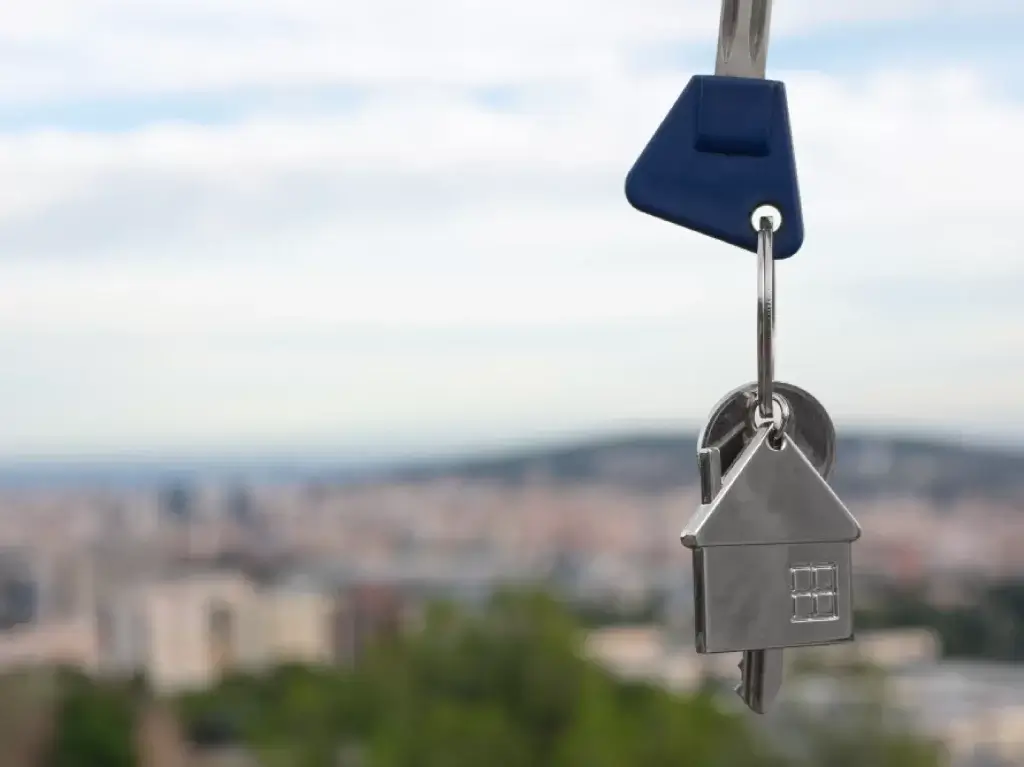Deposit non-protection, rent increases, surrender, and counterclaims
Our client occupied their property in November 2022 on a 12-month tenancy agreement and paid a £600.00 tenancy deposit to their landlord. The landlord did not protect the deposit in one of the three tenancy deposit protection schemes.
In short, any monies paid by a tenant, which constitute a tenancy deposit, need to be protected with one of the three government-backed schemes within 30 days of receipt by the landlord, and the tenant must then receive information regarding its protection within the same 30 days.
From the moment the client moved into the property, there were issues with disrepair and cleanliness. For example, when the client moved in, the word “HELP” was etched onto the living room walls. In May 2023, a leak in the bathroom occurred which led to a large hole in the ceiling that was never rectified.
Just 8 months into the tenancy, our client sought an agreement to leave early and did so in the middle of September 2023.
The landlord attempted to negotiate retention of the full deposit, then half the deposit, and then unilaterally decided to retain £200, returning £400.00. At this juncture, the landlord did not provide evidence or fully explain their reason for wanting to make deductions from the deposit.
Following this, the client instructed Phoenix Legal Limited, in an attempt to seek the outstanding £200.00 deposit and for a claim under Section 214 Housing Act 2004 for the non-protection of the deposit.
Following receipt of the letter of claim, the landlord, perhaps in an attempt to avoid the claim, returned the outstanding £200.00 deposit. However, they refused to settle the claim relating to the deposit not being protected correctly alleging that there would be a counterclaim. This prolonged the matter by some 7 months. It must also be noted that throughout, the landlord accepted that they did not protect the deposit within 30 days.
Following pre-litigation correspondence, the claim was issued to the Court, and at this point, the landlord had attempted to raise the;
- Counterclaim in the figure of £674.22
- Rent arrears of £1,841.21
This matter is a Part 8 claim and was started as such in the late winter of 2023/24. The landlord attempted to bring a counterclaim without first asking the Court’s permission, as is required under CPR 8.7.
Initially, the Court allocated this matter to the small-claims track and allowed the landlord permission to rely upon their counterclaim. However, following an application heard in April 2024, this order was set aside with the claim being transferred back to Part 8 and the landlord then being afforded permission to rely upon the counterclaim and the tenant being allowed to respond to it. A final hearing was held on this matter on 23/05/2024.
Several issues were raised by the landlord in their defence;
- There was no valid surrender of the tenancy in mid-September 2023, and the Client’s liability for rent continued until the tenancy expired in November 2023.
- The rent was raised part-way through a tenancy agreement and the increased rent was due for the period May 2023 to November 2023.
- Dilapidations for remedying issues at the property, namely repainting.
Our client contested the counterclaim in full and submitted picture evidence of the condition of the property from the point of them moving in, through to when they moved out, along with Whatsapp messages exchanged with the landlord ranging from disrepair to surrender that ran to some 60 pages.
Dilapidations
Concerning the counterclaim for dilapidations, our client raised the aspect of betterment, in that the landlord was expecting, and seeking damages to put the property in a better condition than when our client occupied it.
The landlord failed to substantiate any losses. They did not adduce any evidence to show the works were conducted at the property, nor did they conduct a pre-occupation and post-occupation inventory report to compare the condition of the property. As seen in the Court of Appeal case of Mabrouk v Murray [2022] EWCA Civ 960, bare denials and assertions are insufficient for a defence. Essentially, the only evidence the Court had to go on in relation to the dilapidations was the photographs, videos and messages provided by our client, and the written submissions of the parties on the condition both at the point of occupation and vacation.
One aspect was a hole in the ceiling of the bathroom. In May 2023, a leak occurred from the flat above, and the landlord sent a workman to the property to inspect. A destructive inspection took place, and a large section of plasterwork was removed from the ceiling and rubble left over on the floor of our client’s bathroom. The workman then left, leaving the rubble and the hole in the ceiling. This was not rectified prior to our client leaving the property in September 2023.
Surrender of a tenancy agreement
In law, surrendering of a tenancy (tenant moving out) can happen in two ways.
The first is the more formal approach and one which is used for good practice – which is through an express surrender, whereby both parties sign a document stating that the tenancy will come to an end. This is known as a deed of surrender and it must be signed by both the landlord and tenant, and both must be witnessed (section 1(3) Law of Property (Miscellaneous Provisions) Act 1988). The agreement must state clearly that it is by deed, and that the tenancy will come to an end (section 52 Law of Property Act 1925).
The second way is by something known as “surrender by operation of law”. This means that it is implied that the tenancy came to an end. This must follow a series of acts, or an unequivocal act itself which shows that it would be inequitable to treat the tenancy as ongoing, or that the continuation of the tenancy must be entirely inconsistent with the acts of the parties. Essentially, the actions of the parties must indicate that it is agreed the tenancy has ended and that possession has returned to the landlord.
In this matter, our client gave notice that they wanted to vacate, an agreement was reached for them to leave by mid-September 2023, and the landlord retook possession on this date. The landlord went as far as to start action to re-let the property and negotiate the return of the deposit from this point.
The landlord stated that they were told by our client they needed to move out due to the increase in rent, and perplexingly, raised a cause of action in estoppel in an attempt to say that there was no surrender. Short submissions were made in May 2024 at Court as to the definition of estoppel, with it acting as a shield and not a sword in claims and can only be used as a defence to a claim, not as a cause of action.
Rent increase & rent arrears
The main part of the landlord’s counterclaim was for rental arrears stemming from May 2023 when the rent was allegedly increased to November 2023.
Our client’s position was that the landlord attempted to verbally raise the rent in May 2023, without;
- There being a rent review clause within the tenancy agreement;
- Providing a Form 4 notice in line with Section 13 Housing Act 1988; and,
- Providing a new tenancy agreement to take effect at any point pre-November 2023.
As such, the increase in rent was contested, and our client contended that rent was fully paid up until the date of vacation in September 2023. Furthermore, our client stated that as the tenancy was validly surrendered by operation of law, there was no rent due after mid-September 2023.
Outcome
At the hearing on 23/05/2024, the Court held that;
- The tenancy was validly surrendered in September 2023 when taking into account the conduct of the parties in not only the run-up to mid-September 2023 but also in its immediate aftermath. The Court held that if estoppel was to apply, it could only be done so to uphold the surrender by operation of law as it would be inequitable for the landlord to renege on it;
- There was no valid rent increase of the rent during the tenancy, and as such, there was no higher rent due at any point prior to mid-September 2023;
- There was a clear attempt by the landlord to claim for betterment; and,
- The landlord had failed to properly discharge their burden to establish any losses in relation to their counterclaim.
- Our client was awarded £8,882.47, including damages, costs, court fees, and interest.
The outcome of this hearing, which took most of the afternoon of 23/05/2024, highlights the importance of;
- If you wish to surrender a tenancy, it is always best practice to do so by deed. In the event that it is not by deed, the conduct of the parties can sometimes be sufficient to lead to a valid surrender;
- If the landlord wishes to increase the rent, there must be a valid clause within the tenancy agreement to state, as such, the landlord must provide a new agreement, or the landlord must follow the statutory framework to increase the rent.
- As a tenant, it is important to take photographs of the property when you move in, and also when you move out, particularly if the landlord or agent does not do so, and does not conduct a pre-occupation report, which usually consists of you both walking round and agreeing to any pre-occupation issues or damage.
- As a landlord, it is important that you compile pre-occupation and post-occupation inventory reports to establish the condition of the property if you intend to raise it as a claim against the tenant.
The hearing was conducted by Mr Robert Porter, Head of the Landlord and Tenant team at Phoenix Solicitors.

Robert Porter
Head of Landlord & Tenant team
Robert spends much of his time attending court hearings around the country, on behalf of our clients, with a great success rate.
If you are a landlord or tenant and need legal advice, contact our specialist team for a free 30-minute, no-obligation consultation, to discuss your needs.
You can call our team on 0151 306 3694 or email ab@phoenixlegalsolicitors.co.uk
